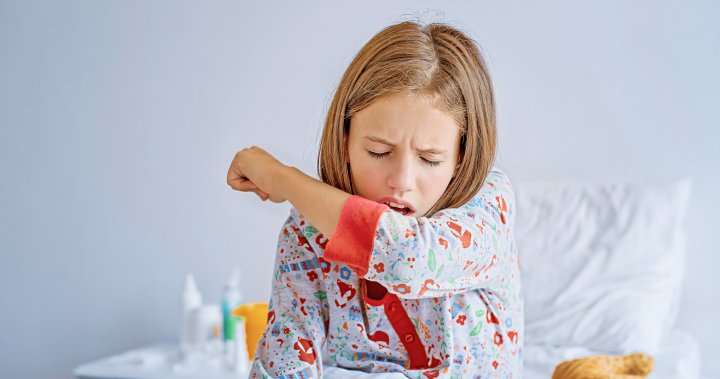Whooping cough is on the rise in Canada as schools reopen and the fall respiratory illness season approaches. Provinces such as Ontario, Quebec, and New Brunswick have reported significant increases in whooping cough cases compared to pre-pandemic levels. Experts warn that as children return to school, cases of whooping cough could continue to rise, with the potential for even more significant outbreaks. Dr. Anna Banerji, a pediatric infectious diseases specialist in Toronto, predicts that the number of cases could increase as children go back to school, where some may not be fully vaccinated.
Dr. Earl Rubin, a pediatric infectious disease specialist in Montreal, highlights the role that schools can play in the spread of whooping cough, increasing the risk of transmission. Like other respiratory viruses, bacterial infections such as whooping cough are more common during the fall and winter months. The bacteria that cause whooping cough are highly contagious and spread easily from person to person through the air, making it important to take precautions such as maintaining a distance of about one meter to reduce exposure.
Whooping cough, also known as pertussis, is a highly contagious respiratory infection that can affect people of all ages. Initial symptoms can resemble a common cold, but the hallmark feature of whooping cough is a prolonged and severe cough. This can progress to include coughing fits that end with a high-pitched “whoop” sound as the infected person catches their breath. These coughing spells can lead to difficulties breathing, choking, vomiting, fatigue, and other complications, particularly in babies and young children.
Preventing whooping cough infection is best achieved through vaccination, which is part of Canada’s routine immunization program starting at two months old. Vaccinated individuals can still get sick with whooping cough, but the illness is usually milder. It is important for parents to ensure their children are up to date on their vaccinations before returning to school. Antibiotics can help treat whooping cough, especially if given early in the illness, and managing symptoms such as taking rest and fluids can help ease the coughing fits.
As the fall respiratory illness season approaches, experts warn of an increase in whooping cough cases in Canada, particularly as children return to school. The highly contagious nature of the bacteria that cause whooping cough, combined with the ease of transmission through the air, underscores the importance of taking preventive measures. Vaccination is recommended as the most effective way to prevent whooping cough infection, with a focus on ensuring children are up to date on their vaccinations before returning to school. Early treatment with antibiotics can help reduce the severity of the illness and manage symptoms.


